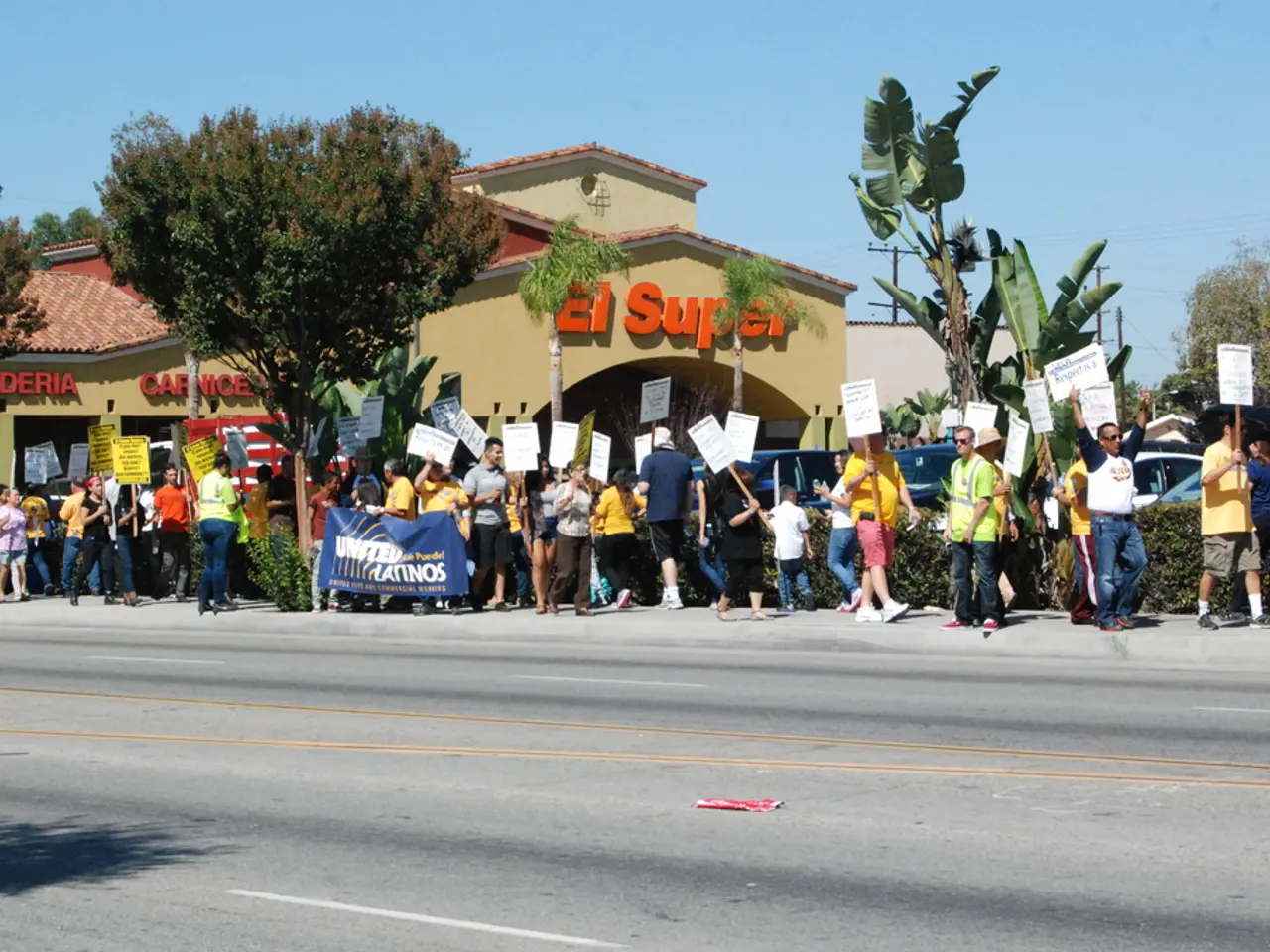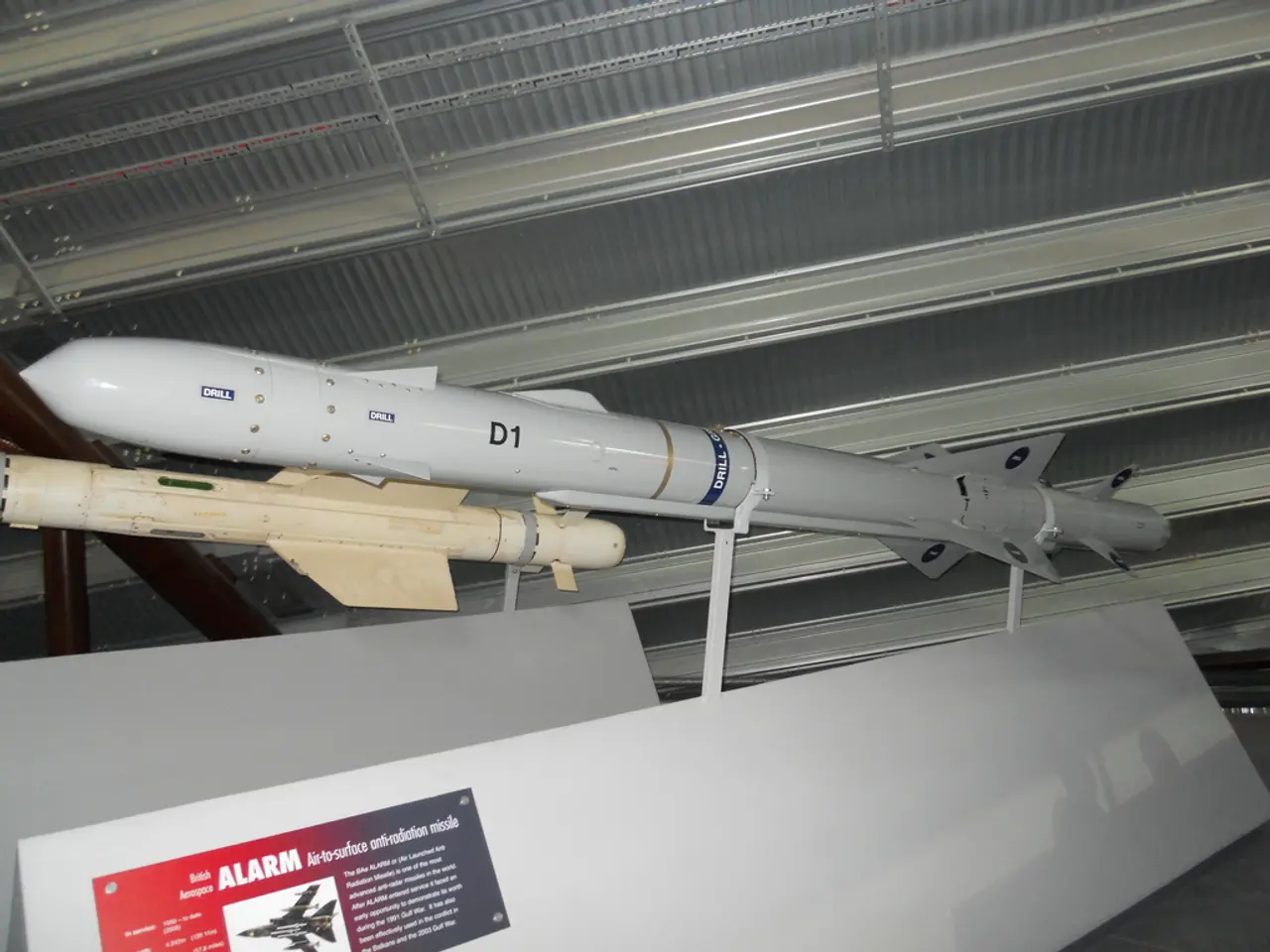Escalating tensions in Syria as Israeli attacks hit Damascus authorities
In the heart of the Middle East, a complex diplomatic landscape is unfolding as Turkey takes the lead in forming a regional front against ongoing Israeli strikes in Syria, particularly in the Druze-majority city of Sweida.
On July 16, 2025, Turkish Foreign Minister Hakan Fidan embarked on a comprehensive diplomatic initiative, reaching out to key regional partners including Syria, Jordan, and Saudi Arabia. The aim was to coordinate a unified response to Israeli attacks on Syrian government buildings in Damascus and the ongoing violence in Sweida[1].
Fidan directly conveyed Ankara’s deep concerns to Syrian Foreign Minister Asaad al-Shaibani, emphasizing the need to halt Israeli military actions and bring the violence in Sweida to an immediate end. He also discussed these issues with the US envoy for Syria, Thomas Barrack, underscoring the urgency of de-escalation[1].
Turkey, which has improved ties with Riyadh and supports Syrian President Ahmed al-Sharaa’s government, has made it clear in public statements that Israel’s strikes are acts of sabotage undermining Syria's chances for peace and stability[2][5]. The Turkish Parliament also formally condemned Israel’s actions as threatening regional peace and reaffirmed strong support for the Syrian people[3].
Israel, on the other hand, justifies its strikes as necessary to protect the Druze minority in Sweida amid clashes between Syrian government forces and local armed groups. However, these attacks have complicated the situation, intersecting with larger regional dynamics and differing visions for Syria’s future between Israel and the US[4].
As diplomatic efforts intensify, the Syrian government has effectively reintegrated Sweida under its control following military operations and announced a cease-fire. Yet, the renewed violence in Sweida continues to complicate US policy objectives in the region[6][7].
In the midst of this, the UAE president is scheduled to visit Turkey on July 16 for High-Level Strategic Council talks[8]. Goldman Sachs, meanwhile, predicts that the US dollar will reach 45 against the Turkish lira in 12 months[9].
The current diplomatic efforts between Syria, Israel, and Turkey are shaping up to be a significant test of credibility and influence for US diplomacy in the region. As the situation remains highly tense and complex, it remains to be seen how these diplomatic efforts will unfold and what impact they will have on the future of Syria.
- The Turkish Foreign Minister, Hakan Fidan, has been engaging in diplomatic discussions with key regional partners, such as Syria, Jordan, Saudi Arabia, and the US, regarding the ongoing Israeli strikes in Syria, particularly in Sweida.
- In an attempt to form a regional front against these Israeli attacks, Fidan directly expressed Ankara’s concerns to the Syrian Foreign Minister, Asaad al-Shaibani, urging the halting of Israeli military actions in Sweida.
- Turkey, with improved relations with Saudi Arabia and support for Syria's President Ahmed al-Sharaa’s government, has publicly denounced Israel's strikes as acts of sabotage that undermine Syria's prospects for peace and stability.
- While Israel justifies its strikes to protect the Druze minority in Sweida amid clashes, these actions have created complications, intersecting with larger regional dynamics and varying visions for Syria’s future between Israel and the US.
- As diplomatic efforts escalate and Sweida is effectively reintegrated under Syrian government control, ongoing violence in the region continues to present challenges for US policy objectives.
- Amid these regional developments, the UAE President is planned to visit Turkey on July 16 for High-Level Strategic Council talks, while Goldman Sachs predicts the US dollar will reach 45 against the Turkish lira in the next 12 months.






